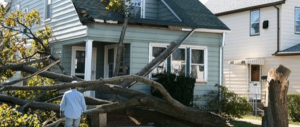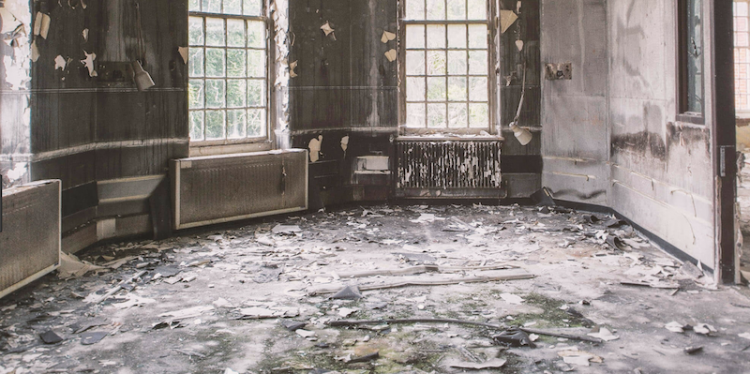Restoration companies are indispensable in flipping houses. For every property that you invest on, it is important to work on the necessary repairs. By doing so, you can market it at a good selling price.
The role of restoration companies in carrying out your plans is essential to the core. The existing damages of the property can be given with the right attention and further impairment can be prevented.
Therefore, controlling the extent of damages is one thing; and planning for the repair is another.
There are virtually a lot of restoration companies that serve real estate investors. In general, the service can be thorough and meticulous given the amount and level of competition between restoration companies. This is a huge advantage among investors and real estate brokers.
In a lot of ways, the services of restoration companies are extremely relevant to both residential and commercial properties. It makes it possible for homeowners to restore and save their properties so they can put their household back to normal. And, also allows businesses to continue with their operations.
Restoration companies evaluate the problem and categorizes the tasks that need to be completed. They have a team of experts who specializes on various aspects of property restoration.
And more importantly, they work towards preventing further damages and secondary problems in order to restore a property in its best shape.
Nature of Work

The main responsibility of restoration companies is to make a property livable, functional and operational in all aspects. They focus on the safety of all aspects ensuring that no secondary problems would arise.
There are specific teams in charge of every aspect such as water system, roof, structural integrity and security among others. With specialized skills, good equipment and efficient methods, restoration teams can preserve the integrity of a property, take care of all the damages and restore it back in shape.
First Stage Damages
In general, water supply damage, roof damage and unwanted growth of molds are the first signs of property damage. Restoration companies are aware of these which is why they have designated teams that specialize on such property issues.
These are also the most common damages that severely affect the structural integrity of a property. Thus, it’s very usual for homeowners to file for insurance claims for such damages.
The Difference between Restoration and Insurance Companies

Restoration companies are completely different from insurance companies.
Restoration companies work on restoring a property back to its original state after it has been damaged by a calamity, accident or unforeseen events.
Insurance companies, on the other hand, provide coverage for the damages to a property. They perform assessment, cost estimate and thorough investigation to determine the extent of damage and how much coverage a property owner is entitled to.
Needless to say, restoration companies can offer their services with or without the involvement of an insurance provider. However, if an insurance provider offers reasonable settlement for property restoration, a restoration company can have suitable basis for the budget requirements.
Aside from property restoration and repair, restoration companies also offer assessment of damages, cost of estimate, property maintenance, damage inspection and investigation.
Classification of Damages and Services
There are different classification of damages that can occur at any point. Some are caused by natural calamities such as floods and hurricanes while others may be due to neglect. Other classifications fall under vandalism, unauthorized break in and fire damage.
Some damages are fairly common in every household and are unavoidable due to constant use which we refer to as “wear and tear”. However, there are also some that could happen momentarily following a natural disaster.
Examples of these are water leakage due to flood and storm, mold growth, broken windows, roof affectation and secondary damages to furniture and to the property’s structure.
It is our responsibility to take the immediate action to your concerns and to prevent further damages the soonest time possible.
Most restoration companies are in tie-up partnership with various insurance companies particularly for damage disposal and clearing up services.
Depending on the property owner’s insurance policy, restoration companies may likewise work on the damages of the property with reference to the settlement approved by the insurance provider.
Finding the Right Insurance for Property Investment
Insurance coverage for your property investment is important and counts as a necessity. A suitable insurance can protect your investment and assets. It can also provide you with peace of mind knowing that your property has the protection it needs.
Furthermore, having property insurance can spare you a lot of trouble and back-breaking costs in case of an unexpected financial consequence brought about by severe damages to your property.
More importantly, you insurance policy will enable you to purchase and acquire the property in the surest way. You should be aware that if you apply for a loan to buy a property, the first thing that the lender would want to see is proof of insurance.
Here’s what we can suggest on finding the right insurance for your property investment;
Get to know the coverage that you need to protect your investment
Identify the right coverage that is necessary in protecting your property. You would need to be aware of the three primary coverages which are Liability, Property and Business Income.
You may perform some research about the primary coverages to understand the pros and cons of each. Another option is to consult a public adjuster in Miami for professional advice on property insurance, coinsurance clause and how much insurance coverage you need.
Actual Cash Value (ACV) versus Replacement Cost (RC)
For most property-related policies, investors can typically choose on what basis they want to have their property insured. ACV and RC are both used as references for calculating the claim payout.
ACV basis considers property depreciation while RC does not. Here’s a typical scenario; in case of a complete loss or devastation of the property, a Replacement Cost (RV) valuation will pay out the cost of replacing the building based on current trends.
RC may cost more but it is more advisable.

